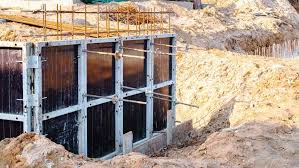Jul . 30, 2024 04:31 Back to list
Exploring Innovative Formwork Solutions for Efficient Slab Production in Modern Factories
The Importance of Formwork in Slab Factories
In the construction industry, the quality and efficiency of building processes heavily rely on the use of appropriate formwork systems. In slab factories, where precast concrete elements are produced, formwork plays a critical role in ensuring the structural integrity, durability, and overall quality of the slabs. This article explores the importance of formwork in slab factories, highlighting its types, benefits, and impacts on the construction process.
Understanding Formwork
Formwork refers to the temporary structure or mold used to shape and support fresh concrete until it gains sufficient strength to support itself. In slab factories, formwork systems are designed to create various concrete products, including floor slabs, roof slabs, and wall panels. These systems can be made from various materials, including wood, steel, and aluminum, each with its own set of advantages and disadvantages.
Types of Formwork in Slab Factories
1. Traditional Timber Formwork This method involves using wooden planks to create molds. While it is cost-effective and easy to work with, it can be labor-intensive and may require skilled carpenters for assembly.
2. Steel Formwork Steel formwork is known for its durability and strength. It can be reused multiple times, making it a more economical choice in the long run. While it has a higher initial cost compared to timber, its longevity and reduced labor costs justify the investment.
3. Aluminum Formwork Lightweight yet strong, aluminum formwork is gaining popularity in slab factories. It is easy to handle and can be assembled quickly, which reduces labor costs and speeds up the construction process. Additionally, aluminum forms are highly durable and can withstand the rigors of repeated use.
4. Plastic Formwork This is a more innovative approach, utilizing plastic materials for mold creation. It is lightweight, easy to clean, and resistant to corrosion. However, it may not be suitable for all types of slab production, depending on specific requirements.
formwork of slab factories

Benefits of Efficient Formwork Systems
The implementation of efficient formwork systems in slab factories offers numerous benefits, including
- Improved Quality High-quality formwork ensures that slabs are produced with accuracy in dimensions and finish. This results in fewer defects and a better overall product, which is crucial for structural integrity.
- Increased Speed of Production Modern formwork systems allow for quicker assembly and disassembly, significantly reducing the time required to produce slabs. This efficiency translates to faster project timelines and reduced labor costs.
- Cost Efficiency While the initial investment in higher-quality formwork may be greater, the long-term savings on labor, material waste, and improved product quality make it a cost-effective solution. More efficient formwork reduces the need for repairs and reworks.
- Sustainability Using durable and reusable formwork systems contributes to sustainability in construction. Reusable materials reduce waste, and many manufacturers are now offering eco-friendly options that minimize the environmental impact of the construction process.
Conclusion
In conclusion, formwork is a vital component of slab factories, impacting both the quality of the finished product and the efficiency of the production process. As the construction industry continues to evolve, the need for innovative and effective formwork solutions will be paramount. By investing in high-quality formwork systems, slab factories can not only improve their product outcomes but also contribute to more sustainable and efficient construction practices.
-
Premium H20 Timber Beams | Durable Structural Solutions
NewsAug.05,2025
-
Premium Wall Formwork Solutions for Modern Construction
NewsAug.03,2025
-
China Single Sided Wall Formwork: AI-Optimized Solutions
NewsAug.02,2025
-
Premium Timber Beam H20 | Strong & Durable Construction
NewsJul.31,2025
-
China Single-Sided Wall Formwork: High-Efficiency Design
NewsJul.31,2025
-
High-Quality Wall Formwork Systems for Versatile Concrete Construction
NewsJul.30,2025